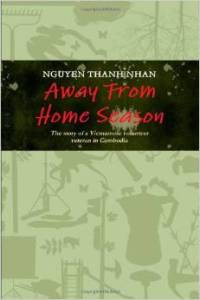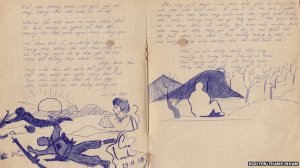Archives
now browsing by author
Vietnamese veterans celebrated their retreat from Cambodia 25 years ago
Comment: Reading news by BBC on “Vietnam’s forgotten Cambodian war”, I am fascinated by Mr. Nhan whose words are reflecting younger Vietnamese population who see the invading into Cambodia is a waste of manpower and left bad reputation for Vietnam many years to come. Hence, their new paradigm shift is in reverse to the imperialism and Nam Tien policy of top Vietnamese leaders. As this country is still governed by Communist system, the voice of those youth has no space to express or to change such entrenched mentality at all. Mr. Nhan is not alone on his reaction to the invasion over Cambodia, the villagers in central Vietnam whom I visited in 2007 whispered to me that their children were forced to carry guns and trucked them to Cambodia. The parents and relatives were so suffering and painful. As they knew, I am Cambodian, everyone seems in hurry to recall their past suffering. An aged woman recalled about the non-returned son, and another man smiled as his son is still alive and can re-unionize with the family. Nhan is right saying that “American soldiers thought they helped Vietnam. Then their illusion was broken,” Mr Nhan said. “We were the same in Cambodia.” His fearful momentum was that in daytime those Cambodians are friend but they turned to be enemy in the night time. I am going to purchase his book “Away from Home Season – The Story of a Vietnamese Volunteer Veteran in Cambodia” and try to understand his point of view although it has been censored and distorted the original manuscript by the Vietnamese government to fit their political agenda.
However, Mr. Nhan including many Vietnamese see that the choice government chose was not right for them but they are sill voiceless to be heard and the cycle of Kamma of an imperialism mindset under the yoke of communist system has been rolling non-stop although barking sound sometime distracted them a lot. I would like to invite everyone to read this report by BBC written by Kevin Doyle from Phnom Penh
Sophal: her personal story telling to illustrate Cambodia politics

Dear Dr.:
In my humble opinion: may I thank you for giving me all these credits. I am certain that every body has a story…wether it is told or not, every body has one or even more than one stories….And I am very greatful for having you telling mine.Best Regards,Sophal
Written by
Gaffar Peang-Meth
My last column, in the May 31 Pacific Daily News, “Sophal is a rare voice of calm,” brought a slew of e-mails from readers who expressed admiration for Chan Sophal’s life struggle and how her story has inspired them. Readers’ emails inspired today’s follow-up on Sophal: A lesson to learn.Sophal’s parents’ cultural clashes (a passive, compassionate, tolerant Khmer Buddhist father in discord with a fiercely authoritarian, industrious, determined Chinese Confucian mother) made Sophal’s childhood less than happy. But she transformed her challenges into strength.
Through socialization, children learn values and attitudes and how to fit them into their new adult roles. Children watch, listen, imitate. In Sophal’s childhood socialization, she picked up the manners, behavior, attitudes and values from her parents — values and attitudes that were always being adapted and reinforced as she grew and passed through new experiences.
Socialization is a continuous, lifelong process.
Helped her survive
Thus what the 17-year-old 11th grader in Cambodia’s northwestern Battambang province learned, adapted and readapted helped her survive the Khmer Rouge Otaki youth camp in 1975-1979. Sophal endured hardships in the ricefields for Angkar (the Khmer Rouge Organization’s all-encompassing designation for its leader) and was “investigated” for having demonstrated an ability to write, having agreed to record for Angkar the names and personal data of her campmates, and for refusing to complain.
She politely declined offers of extra food. She upheld her Chinese mother’s teaching of the Confucian Constants, and her Khmer Buddhist father’s teaching of a person’s ability to improve.
Incredibly, Sophal and a Khmer Rouge chieftain, Mit (Comrade) Bang Rin, a thirty-something woman who left her family at age 10 to serve Angkar, developed a bond — so close and so special that Mit Bang Rin became Sophal’s protector. When Angkar ordered its troops to evacuate Otaki after Vietnam’s invasion in 1979, Sophal pleaded with Mit Bang Rin to go with her. Mit Bang Rin said she couldn’t even assure her own survival, so ordered Sophal to take care of herself. They parted in tears.














